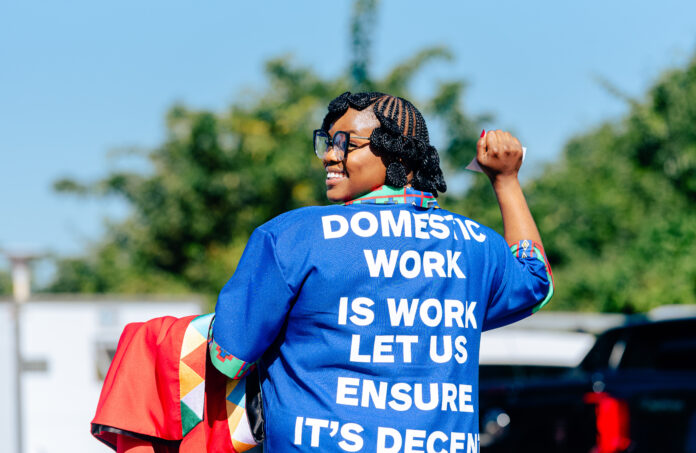Black employers are exploiting domestic workers, and many of them receive the worst treatment from their black employers.
This finding was revealed in a recent study conducted by Dr Thobeka Ntini-Makununika.
The paper is titled: “Unravelling the Dynamics of Power in the Employer-Domestic Worker Relations in Contemporary South Africa, KwaZulu-Natal: Praxis-Oriented Research.” It unpacks the hidden power dynamics in South African households.
Domestic workers starting to open up
“Domestic workers often brand themselves as powerless. They are marginalised, and they never speak out about it. But through dialogue, many began recognising their agency, from subtle boundary setting to overt acts of defiance.
“Employers, too, revealed moments of vulnerability and moved toward mutual understanding. The binary of ‘powerful employer’ versus ‘powerless worker’ started to unravel.
“Another most striking finding was that exploitation is not limited by race. Several domestic workers revealed that their worst experiences were with black employers. This shows that power in domestic work isn’t only about race. It is also about social status, class and internalised oppression.
Broader disregard for value of domestic worker
“While some employers clearly defined their own working hours, they were often evasive or dismissive about their domestic workers’ working hours. This highlighted a broader disregard for the value of their employees’ time.”
On Tuesday, May 6, Ntini-Makununika, a former domestic worker, received her PhD from the University of KwaZulu-Natal. She revealed that her late mother, late grandmother and aunt also worked as domestic workers.
She was barely a teenager when she got a job as a domestic worker.
“For seven years, from 13 years old, I worked part-time for white families and in holiday resorts. I experienced first-hand the quiet suffering, the layered dignity and the complex dependencies in those relationships,” she recalled.
Her paper focused on domestic workers because she wanted to humanise domestic work.
Redefining domestic work’s societal value
“I wanted to redefine its societal value and inspire reflection and action. It’s a call to reconsider whose labour we honour, whose voices we centre, and what justice truly looks like.
“I wasn’t writing just for academic study. But I was writing for the daughters of domestic workers who may one day read my work.”
Field work took an emotional toll on her.
Moments of awakening
“Listening to stories of unpaid dismissals and racial macroaggressions was hard. Sometimes I had to pause and process my own memories. But witnessing moments of awakening for both workers and employers was powerful,” she said.
She believes that the institution of domestic work is still deeply entangled in colonial and capitalist legacies.
“We need a shift in values. Grounding policy and practice in Ubuntu can help affirm the humanity and dignity of domestic workers.
“Until we value the hands that clean our homes and raise our children as much as those that govern boardrooms, we will never dismantle the inequality woven into the fabric of our daily lives. Domestic work is work. Let us ensure it is decent work,” she said.
She said that in some of the interviews, there were instances where black employers felt that domestic workers showed more deference to their White employers.
“However, my research cautions against interpreting this at face value. What I uncovered is that these dynamics are less about individual attitudes and more about entrenched histories of race, class, gender power, and especially social positioning.
“What I mean by social position is a person’s status within the social hierarchy shaped by economic class, access to education, job security, income level, and societal privilege, not just race.
Powerful people reproduce inequality
“What I am highlighting is that people who hold greater power, resources, or authority regardless of their racial identity can and do reproduce inequality.
“Although, this does not mean that domestic workers are inherently powerless. Domestic workers often internalise societal hierarchies that position white employers as more ‘professional’ or ‘deserving’ of respect, due to colonial legacies and ongoing racialised social norms.
“At the same time, domestic workers expressed disappointment and a deeper sense of betrayal when exploited by Black employers, especially when they expected shared racial identity to foster empathy.
“So, while complaints from Black employers exist, the root issue is the structural marginalisation of domestic workers, regardless of the employer’s race. Overall, the study shows that exploitation is linked more to social position and power than race alone, although this power is non-binary and can be negotiated,” she explained.



